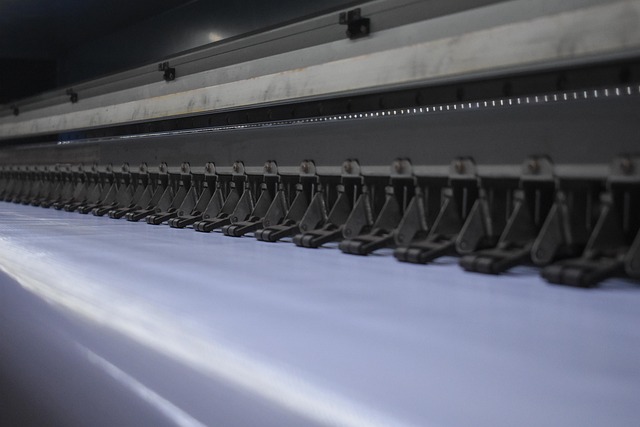DTF Printers: Revolutionizing Custom Apparel and Merchandise Production
DTF printers are specialized machines that allow direct-to-film printing, producing vibrant designs for textiles. Known for their versatility and durability, they enable detailed prints on various fabrics, making them a popular choice for businesses and creators in the custom apparel industry.

What are DTF Printers and How Do They Work?
DTF printers utilize a unique printing process that involves transferring designs onto a special film before applying them to the desired substrate. The process begins with printing the design onto a transparent PET film using specially formulated DTF inks. Once printed, a powder adhesive is applied to the design, which is then heat-cured. This creates a transfer that can be easily applied to various materials using a heat press.
The DTF printing method offers several advantages over traditional printing techniques. It allows for vibrant, full-color designs with excellent wash-fastness and durability. Additionally, DTF transfers can be applied to a diverse range of fabrics, including cotton, polyester, blends, and even challenging materials like nylon and leather.
How Are DTF Printers Transforming Custom Merchandise Production?
DTF printers have significantly impacted the custom merchandise industry by offering a versatile and cost-effective solution for small to medium-sized production runs. Unlike traditional screen printing, which often requires large minimum orders and complex setup processes, DTF printing allows for easy production of small batches or even individual items.
This flexibility has opened up new opportunities for businesses to offer personalized products and on-demand printing services. From custom t-shirts and hoodies to tote bags and promotional items, DTF printers enable creators to produce high-quality merchandise with minimal waste and setup time.
What Makes DTF Printers Reliable for Apparel Printing?
Reliability is a crucial factor when choosing printing equipment for apparel production. DTF printers have gained a reputation for dependability due to several key features:
-
Consistent Print Quality: DTF printers produce sharp, vibrant designs with excellent color accuracy and detail reproduction.
-
Durability of Prints: The heat-cured adhesive used in DTF transfers creates a strong bond with the fabric, resulting in prints that are resistant to washing, stretching, and cracking.
-
Versatility: DTF printers can handle a wide range of designs, from simple text to complex, multi-color graphics, making them suitable for various apparel types and styles.
-
Low Maintenance: Compared to some other printing technologies, DTF printers generally require less frequent maintenance and have fewer consumable parts, contributing to their overall reliability.
How to Choose the Right DTF Printer for Custom Merchandise Production?
Selecting the appropriate DTF printer for your custom merchandise business requires careful consideration of several factors:
-
Production Volume: Assess your current and projected production needs to determine the appropriate printer size and capacity.
-
Print Quality: Look for printers that offer high resolution and color accuracy to ensure your designs look their best.
-
Ease of Use: Consider the learning curve and user-friendliness of the printer’s software and hardware.
-
Support and Warranty: Check the manufacturer’s support options and warranty coverage to ensure you have assistance when needed.
-
Cost of Ownership: Evaluate not just the initial purchase price but also ongoing expenses such as ink, film, and maintenance.
What are the Limitations of DTF Printers for Apparel Printing?
While DTF printers offer numerous advantages, it’s important to be aware of their limitations:
-
Initial Investment: Quality DTF printers can represent a significant upfront cost, which may be challenging for small businesses or startups.
-
Learning Curve: Mastering the DTF printing process and achieving optimal results may require some time and experimentation.
-
Size Limitations: Most DTF printers have a maximum print size, which may not be suitable for very large designs or all-over prints.
-
Material Considerations: While versatile, DTF printing may not be ideal for all fabric types or extremely textured surfaces.
Comparison of Popular DTF Printers for Custom Merchandise
| Printer Model | Max Print Size | Print Speed | Key Features | Estimated Cost |
|---|---|---|---|---|
| Epson F2100 DTF | 16” x 20” | Up to 20 dark shirts/hour | High-quality prints, low maintenance | $17,995 |
| Aeoon KYO Link | 23.6” x 35.4” | Up to 100 prints/hour | High-speed production, large print area | $99,000 |
| DTF Pro 100 | 11.8” x 16.5” | Up to 15 shirts/hour | Compact design, affordable entry point | $4,999 |
| ColDesi DTF-24H2 | 24” x 36” | Up to 60 shirts/hour | Wide format, dual printhead system | $29,995 |
Prices, rates, or cost estimates mentioned in this article are based on the latest available information but may change over time. Independent research is advised before making financial decisions.
DTF printers have revolutionized the custom apparel and merchandise industry by offering a versatile, reliable, and efficient printing solution. As technology continues to evolve, these printers are likely to play an increasingly important role in the fashion and promotional products sectors, enabling businesses to create high-quality, personalized items with greater ease and flexibility than ever before.




